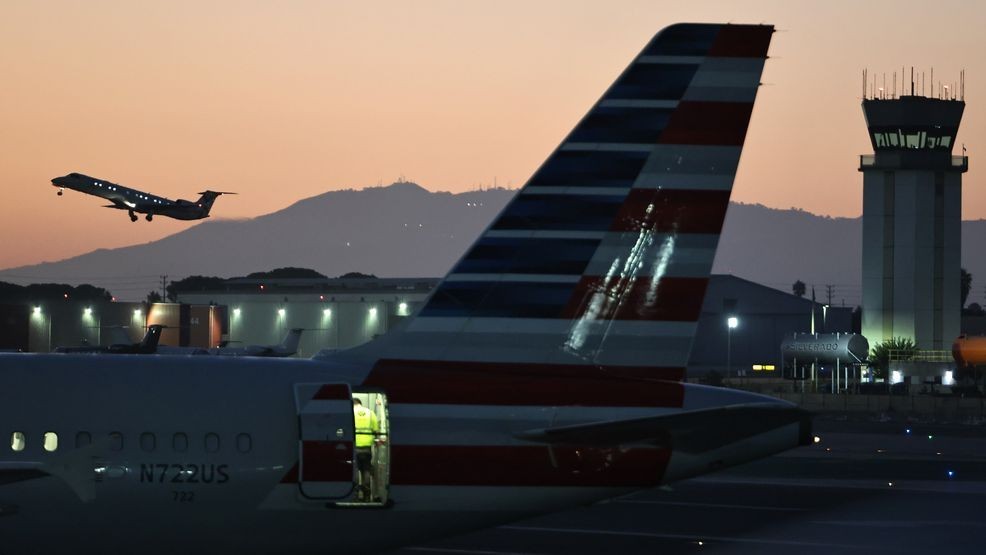SEATAC, Wash. — It is the 28th day of the U.S. government shutdown, and the first day many federal employees do not receive a paycheck.
“It’s disheartening,” Regional Vice President for the National Air Traffic Controllers Association (NATCA) Mark Rausch said. “We have so many proud professionals that work in aviation that work on the safety systems that help support air traffic controllers.”
Rausch is an aviation safety specialist at Seattle-Tacoma International Airport (SEA) who has been furloughed since the start of the government shutdown. He and other specialists and air traffic controllers, who are paid by the Federal Aviation Administration (FAA), are taking a stance alongside several other airports across the country.
They handed out pamphlets all day asking travelers, “Will you support unpaid air traffic controllers?”
“Flying is just as safe as it’s ever been,” Rausch said. “We are just trying to ask the public to reach out and contact their representatives in Congress to say, ‘end the shutdown,’ so we can stop this distraction.”
Air traffic controllers and NATCA will be handing out pamphlets on the skybridges at SEA airport until the end of the week, at least. They said not only are they asking flyers to reach out to their Congressional representatives, but also want them to know why it is so detrimental that airport employees are unpaid or furloughed.
“Anytime that you do a shutdown, it introduces a distraction to the system. A distraction to safety,” Rausch said. “So, funding the air traffic controllers and aviation safety professionals is critical, because the flying public deserves to have the best, safest, most highly professional aviation safety system in the world.”
Rausch said air traffic controllers are already having to make difficult decisions, and more will have to do the same as the shutdown continues.
“We have folks that are having to make those tough decisions of ‘do I put gas in my car to drive to work where I’m not getting paid? Or do I put food on the table?” Rausch said.
Rausch said moving forward, he would like to see “more stable funding,” which does not put air pay and safety at risk when there is a government shutdown.
He said staffing has already been an issue for more than a decade, and the problem is only being exacerbated by this. Travelers going through Sea-Tac that KOMO spoke with were supportive of the FAA workers. Port of Seattle Commissioner Sam Cho brought sandwiches to the FAA workers, handing out pamphlets.
“FAA workers are already under a tremendous amount of stress,” he said. “The reality is that working their shifts while knowing that their family isn’t going to have potentially rent to pay, food on their table, and tuition makes the job harder to do. Even if they’re showing up for work, they’re probably not 100% there because they’re concerned about their own livelihoods.”
U.S. Transportation Secretary Sean Duffy said that as more people call out to go work a second job and bring in income—or in protest because they are not getting paid—it will cause more disruptions to flights.
“We’ve gone up as high as 53% of the delays have been because of staffing shortages, and that number moves every single day,” Duffy said.

